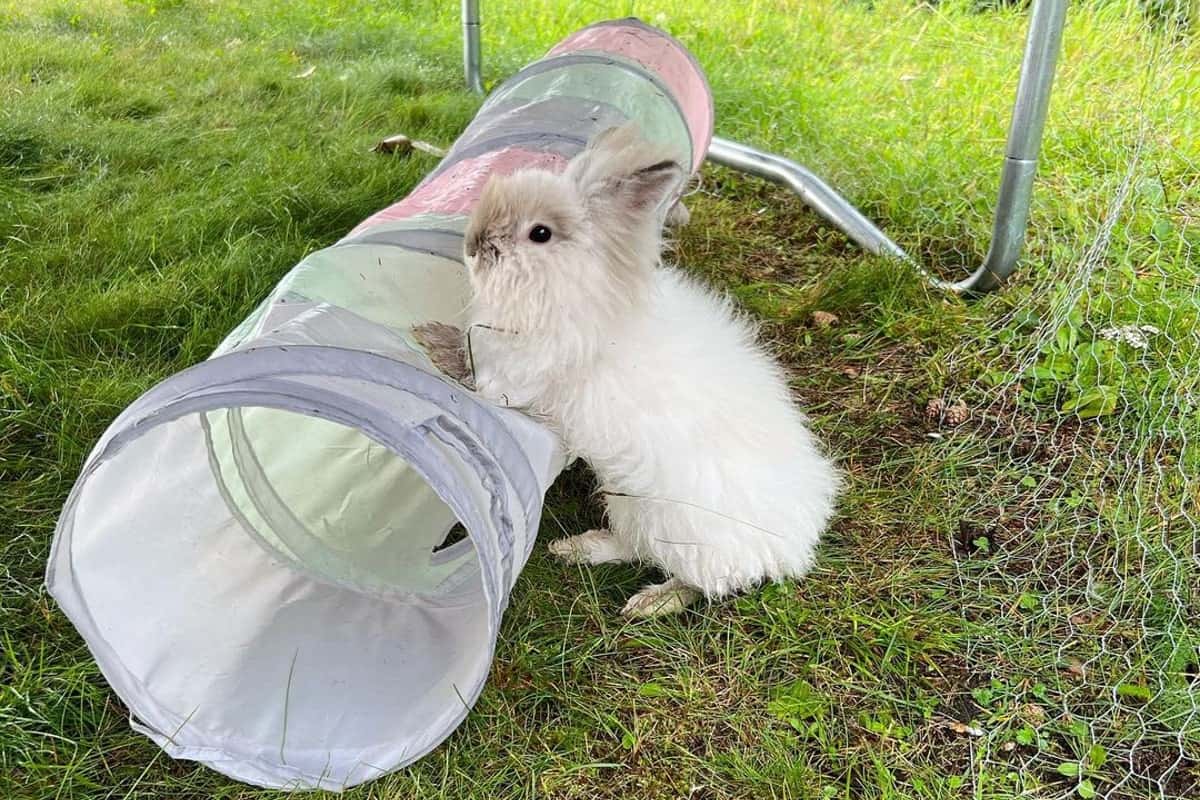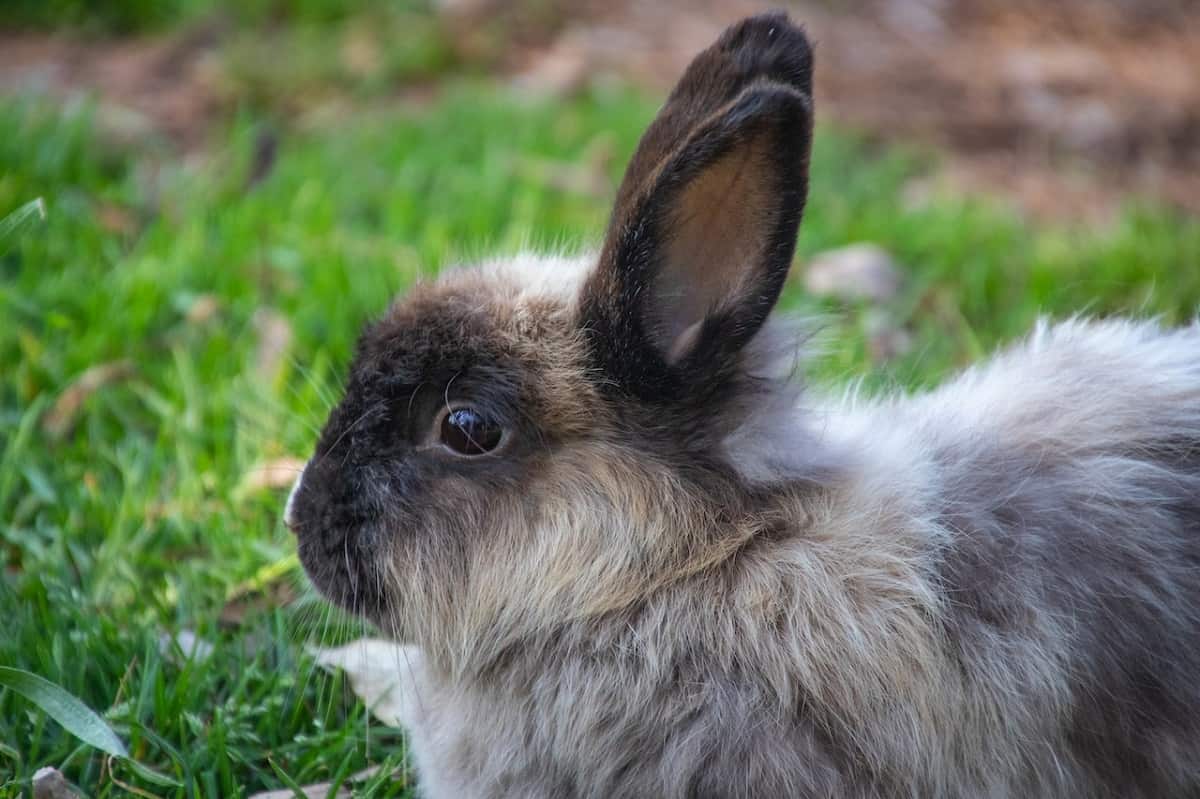Do bunnies need shots? There is a lot of debate when it comes to whether or not rabbits need vaccinations in the United States. However, according to the American Veterinary Medical Association (AVMA), there are currently no vaccinations that are required by law for rabbits in the United States.
There are, however, a few vaccinations that are recommended for rabbits. The most important of these is the myxomatosis vaccine, which helps protect rabbits from a serious and often deadly disease. Other recommended vaccinations include the calicivirus vaccine and the VHD vaccine.
While there is no law requiring that rabbits receive vaccinations, it is important to keep your rabbit up-to-date on his or her vaccinations. This is especially important if your rabbit interacts with other rabbits, since they may be susceptible to diseases like myxomatosis.
If you have any questions about whether or not your rabbit needs vaccinations, be sure to speak with your veterinarian. In this article we will discuss different diseases you may want to vaccinate your rabbit from.
Does Rabbit Need Vaccine?
Myxomatosis is a serious disease that can cause death in rabbits. The disease is caused by a virus and is spread through contact with other rabbits, or through contact with objects that have been contaminated with the virus. The virus can also be spread through the air. The disease is most common in the summer months. Symptoms of myxomatosis include fever, discharge from the eyes and nose, and swelling of the head and face. The disease can be fatal.
Rabbit hemorrhagic disease virus (RHDV) is a deadly virus that can kill rabbits within hours of infection. The virus is spread through contact with other rabbits, or through contact with objects that have been contaminated with the virus. The virus can also be spread through the air. There are two types of RHDV, RHDV1 and RHDV2. RHDV1 is the most common type of RHDV and is most common in Europe. RHDV2 is a newer type of RHDV and is most common in Australia. Symptoms of RHDV include fever, discharge from the eyes and nose, and swelling of the head and face. The disease can be fatal.
This provides us with quite clear answer to “Do pet rabbits need shots?”Rabbits can be vaccinated against myxomatosis and RHDV1 and RHDV2. There are a number of different vaccines available, so it’s important to speak to your veterinarian about which vaccine is best for your rabbit. Vaccination is the best way to protect your rabbit from these deadly diseases. Luckily, these diseases aren’t widespread in North America, but it’s still important to vaccinate your rabbit against them in case of risk of infection. Make sure to get shots for bunnies to protect them!

What vaccines are available in Europe for rabbits?
There are a number of different vaccines available for rabbits in Europe. The most common vaccine is the myxomatosis vaccine. The vaccine is available as a single vaccine or in a combination vaccine that also protects rabbits against RHDV1. Other vaccines available in Europe include the RHDV2 vaccine, the calicivirus vaccine, and the herpes virus vaccine.
What vaccines are available in Australia for rabbits?
The most common vaccine available in Australia for rabbits is the RHDV2 vaccine. The vaccine is available as a single vaccine or in a combination vaccine that also protects rabbits against myxomatosis and calicivirus. Other vaccines available in Australia include the calicivirus vaccine and the herpes virus vaccine.
What vaccines are available in North America for rabbits?
There are a number of different vaccines available for rabbits in North America. The most common vaccine is the myxomatosis vaccine. The vaccine is available as a single vaccine or in a combination vaccine that also protects rabbits against RHDV1. Other vaccines available in North America include the RHDV2 vaccine, the calicivirus vaccine, and the herpes virus vaccine.
What vaccines are available in New Zealand for rabbits?
The most common vaccine available in New Zealand for rabbits is the myxomatosis vaccine. The vaccine is available as a single vaccine or in a combination vaccine that also protects rabbits against RHDV1. Other vaccines available in New Zealand include the RHDV2 vaccine and the herpes virus vaccine.
When to Get Your Rabbit Vaccinated
As a responsible pet owner, it is important to ensure that your rabbit is vaccinated against common diseases. What vaccines do rabbits need? There are three main diseases that rabbits can be vaccinated against: myxomatosis, RHDV1, and RHDV2. If vaccines are available for a particular disease, it is important to get your rabbit vaccinated as soon as possible.
As for the age of rabbits when they should be vaccinated, it depends on the vaccine. Some vaccines can be given to rabbits as early as eight weeks old, while others are not recommended until the rabbit is at least four months old. Speak to your veterinarian to find out when your rabbit should be vaccinated.
Boosters may also be necessary to maintain immunity, so be sure to keep up with your rabbit’s vaccination schedule. If you are unsure whether your rabbit is up-to-date on its vaccinations, ask your veterinarian to check. Failing to vaccinate your rabbit can leave them susceptible to deadly diseases.

Side Effects of Vaccinations for Rabbits
Vaccinations are an important part of keeping your rabbit healthy. However, as with any medical procedure, there are some potential side effects to vaccinations.
The most common side effect of vaccinations is fever. This is usually mild and short-lived. Some rabbits may also experience a loss of appetite or reduced energy levels after getting a vaccination.
In rare cases, a rabbit may experience more severe side effects, such as an allergic reaction or swelling at the injection site. If your rabbit experiences any of these more serious side effects, contact your veterinarian immediately.
Is it okay to allow your rabbit to go outside without being vaccinated?
There is no simple answer when it comes to the question of whether or not to allow a rabbit to go outside without being vaccinated. Much depends on the specific situation and on the geographical location where the rabbit lives.
Some veterinarians believe that all rabbits should be vaccinated against Myxomatosis and Viral Hemorrhagic Disease (VHD), whether they are kept inside or allowed to roam outside. These diseases are endemic in many parts of the world, and can be fatal to unvaccinated rabbits.
However, other veterinarians believe that the risk of a rabbit contracting one of these diseases is relatively low, and that the benefits of allowing a rabbit to roam free outside outweigh the risks. They argue that even a non-vaccinated rabbit living in a safe environment is unlikely to come in contact with either of these diseases.
The final decision on whether or not to allow a rabbit to roam outside without being vaccinated lies with the pet owner. It is important to weigh up the risks and benefits of both options and to consult with a veterinarian before making a decision.
What is Myxomatosis?
Myxomatosis is a serious, infectious disease caused by the myxoma virus. The virus is found in rabbits and wild rodents, and is transmitted to domestic rabbits through the bites of mosquitoes, fleas, and other insects. Myxomatosis is most commonly seen in pet rabbits, but can also occur in wild rabbits. The disease is characterized by the development of large, fluid-filled swellings (known as myxomas) on the skin and in other tissues. These myxomas can cause extreme swelling and distortion of the affected tissues, and can lead to blindness, paralysis, and death. There is no specific treatment for myxomatosis, and the disease is often fatal. Prevention of the disease is through the use of vaccines and vector control.

How it’s spread
The myxoma virus that causes myxomatosis is found in rabbits and wild rodents. The virus is transmitted to domestic rabbits through the bites of mosquitoes, fleas, and other insects.
What are the symptoms?
The symptoms of myxomatosis vary depending on the stage of the disease. Early symptoms can include fever, lethargy, and anorexia. In later stages, the disease can cause large, fluid-filled swellings (known as myxomas) on the skin and in other tissues. These myxomas can cause extreme swelling and distortion of the affected tissues, and can lead to blindness, paralysis, and death.
How can it be prevented?
Prevention of the disease is through the use of vaccines and vector control. Vaccination of domestic rabbits is the most effective way to prevent myxomatosis, and is recommended for all rabbits. Vector control is also important, and includes the use of insecticides to kill mosquitoes and other insects that can spread the virus.
What is RHDV1 and RHDV2
There are two types of RHD virus, RHDV1 and RHDV2.
RHDV1 is a highly lethal virus that causes severe hemorrhagic disease in rabbits. It is also known as rabbit calicivirus. RHDV1 is very contagious and can be spread by contact with infected rabbits, their droppings, or their fur. The virus can also be spread through the air. Symptoms of RHDV1 include fever, lethargy, anorexia, and hemorrhaging.
There is a vaccine available for RHDV1, but it is not 100% effective.
RHDV2 is a less lethal virus that causes milder disease in rabbits. It is also known as rabbit hemorrhagic disease. RHDV2 is not as contagious as RHDV1 and is not spread by contact. The virus is spread through the air. Symptoms of RHDV2 include fever, lethargy, and anorexia. Death typically occurs within 2-3 days of onset of symptoms.

Recently, a vaccine was developed against this virus too.
FAQ
Do rabbits need shots?
Yes, rabbits should have a yearly check-up with a veterinarian and receive the appropriate shots.
What vaccines do bunnies need?
Rabbits need a yearly vaccine for Myxomatosis and a 6-month vaccine for Viral Hemorrhagic Disease.
Can bunnies get covid?
There is no evidence that rabbits can get covid.
Do rabbits need shots in America?
Yes, rabbits should have a yearly check-up with a veterinarian and receive the appropriate shots, as is the case in most countries.
Conclusion
So, do bunnies need vaccinations? Yes, it is important to get your rabbit vaccinated against common diseases. There are three main diseases that rabbits can be vaccinated against: myxomatosis, RHDV1, and RHDV2. If vaccines are available for a particular disease, it is important to get your rabbit vaccinated as soon as possible. Speak to your veterinarian to find out when your rabbit should be vaccinated.
Also read:
- Discover the Amazing World of 10 Day Old Bunnies: All About Rabbits!
- Discover All About the Characteristics of a 1 Year Old Rabbit
- Why Doesn’t My Rabbit Like Me? – Understanding Rabbit Behavior for All About Rabbits
- Everything You Need to Know About Bunny Grinding Teeth in Rabbits
- How Eating Poop is Part of a Normal Rabbit Diet – All About Rabbits
References
- American Veterinary Medical Association (AVMA) | AVMA – https://www.avma.org/
- RHDV, RHDV1 and RHDV2 | House Rabbit Society (HRS) – https://rabbit.org/rhdv/
- Myxomatosis | World Organisation for Animal Health – https://www.woah.org/en/disease/myxomatosis/
